Ladder Safety: Specialized Training for Risk Assessment and Prevention
Ladder safety requires a multi-faceted approach involving regular maintenance, proper storage, and s…….
Introduction
Safety in the workplace is paramount, and with industries ranging from construction to healthcare, the need for specialized safety training has never been more critical. This comprehensive article delves into the intricacies of specialized safety training by industry, its evolution, global impact, economic significance, technological advancements, policy frameworks, challenges, case studies, and future prospects. Readers will gain a deep understanding of how this essential training not only protects workers but also contributes to the stability and growth of industries worldwide.
Understanding Specialized Safety Training by Industry
Specialized Safety Training by Industry is a targeted educational program designed to equip employees with the knowledge, skills, and competencies necessary to perform their duties safely within their respective sectors. It encompasses industry-specific hazard recognition, risk assessment, and mitigation techniques tailored to the unique challenges faced in each field. The core components of this training include:
Historically, the impetus for specialized safety training grew out of the Industrial Revolution, when rapid industrialization led to unsafe working conditions. Over time, it has evolved from general safety guidelines to comprehensive, regulated, and often mandatory training programs that are critical to the operational integrity of various industries.
Global Impact and Trends
The impact of specialized safety training is felt worldwide, with trends reflecting a growing awareness of workplace safety as a human right and a business imperative. Key trends shaping its trajectory include:
Different regions are affected in unique ways; for instance, North America and Europe have robust regulations and well-established training programs, while developing countries are increasingly focusing on building their infrastructure to support safety training initiatives.
Economic Considerations
The role of specialized safety training within economic systems is multifaceted. It serves as a tool for risk management, cost reduction through fewer accidents and lower insurance premiums, and as a means to enhance productivity and performance. Market dynamics influence the demand for skilled workers with proper safety training, and investment patterns reflect a growing commitment to workplace safety as a driver of economic sustainability.
Specialized safety training also plays a role in mitigating the financial impact of work-related accidents and injuries. By investing in comprehensive training programs, industries can reduce downtime, minimize the cost of compensation claims, and prevent long-term disruptions to operations. Furthermore, it contributes to a positive brand image and customer trust, which are essential for economic success.
Technological Advancements
Technology has revolutionized specialized safety training by Industry. Innovations such as augmented reality (AR), VR, and online learning platforms have made training more accessible and interactive. These advancements include:
The future potential of these technologies promises even more sophisticated training tools, with the capacity to analyze real-time data and provide personalized learning experiences based on individual performance and industry needs.
Policy and Regulation
A patchwork of policies and regulations governs specialized safety training by Industry across the globe. These include Occupational Safety and Health Administration (OSHA) standards in the United States, the European Agency for Safety and Health at Work (EU-OSHA) guidelines in Europe, and various other country-specific regulations.
Legislation mandates that employers provide adequate training, and these frameworks are continually updated to reflect new hazards and technologies. Compliance with these regulations is not only a legal requirement but also a benchmark for industry best practices. Regulatory bodies often collaborate with industry leaders to develop standards that ensure both worker safety and economic viability.
Challenges and Criticisms
Despite its importance, specialized safety training by Industry faces several challenges and criticisms. These include:
To address these issues, a multi-pronged approach is needed. This includes advocacy for increased funding and resources, the development of more robust and flexible training curricula, and the creation of cross-industry task forces to share knowledge and best practices.
Case Studies
Several case studies illustrate the effectiveness of specialized safety training by Industry. For example:
These success stories demonstrate the tangible benefits of specialized safety training initiatives.
Conclusion
Specialized safety training by Industry is a critical component of modern workplace practices. It is integral to the health and well-being of workers, the economic sustainability of industries, and the overall competitiveness of the global marketplace. As technology continues to advance and regulatory frameworks evolve, the role of specialized safety training will only grow in importance. Through a commitment to continuous improvement and adaptation, this essential training can help prevent accidents, reduce costs, and ensure that workers return home safely at the end of each day.
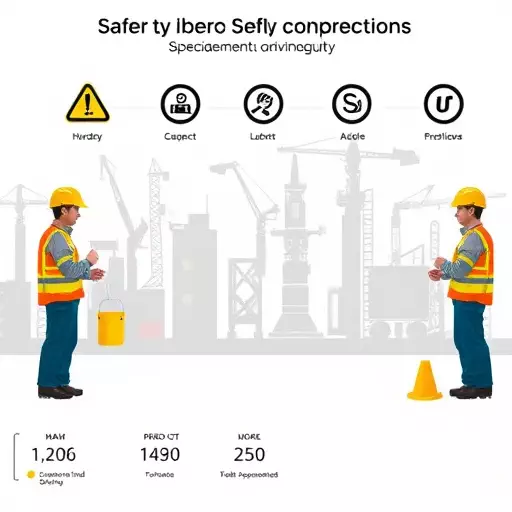
Ladder safety requires a multi-faceted approach involving regular maintenance, proper storage, and s…….

In industrial settings, specialized safety training for forklift operation is crucial for mitigating…….
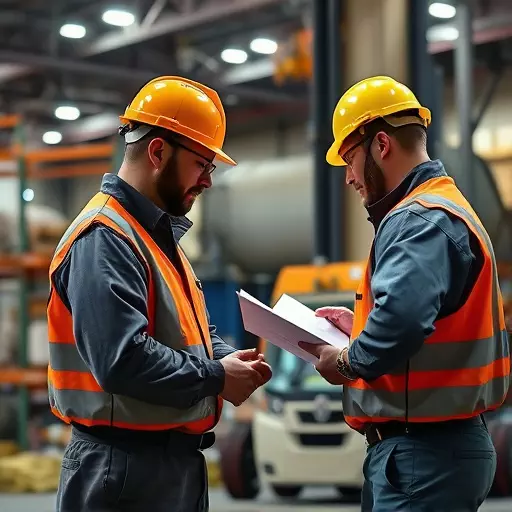
Specialized safety training by industry experts is vital for managing hazardous waste operations, en…….
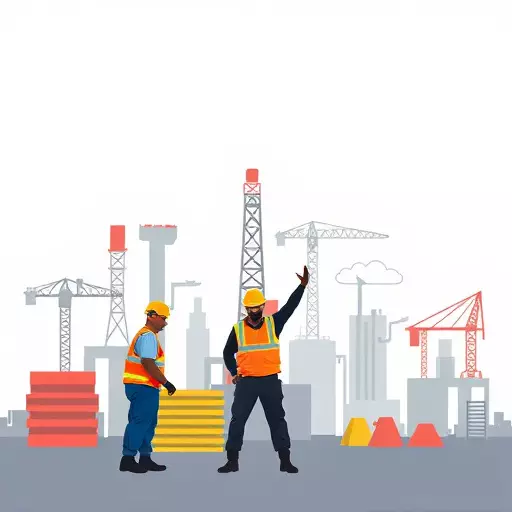
Specialized safety training tailored to maritime industry sectors is vital for navigating unique ris…….

Noise-induced hearing loss (NIHL) is a significant risk in industrial environments with high noise l…….
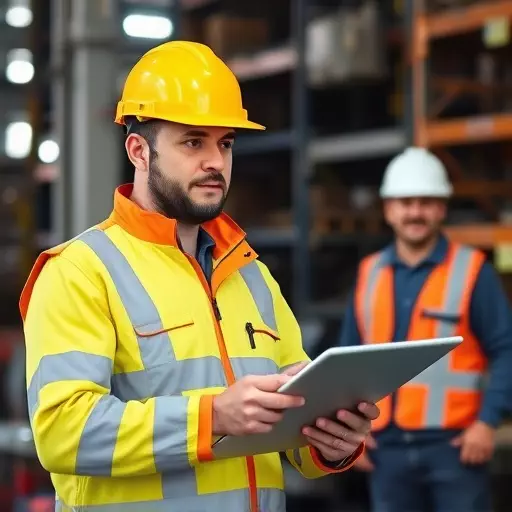
Safety Leadership Programs empower organizations through specialized, industry-tailored training. Th…….
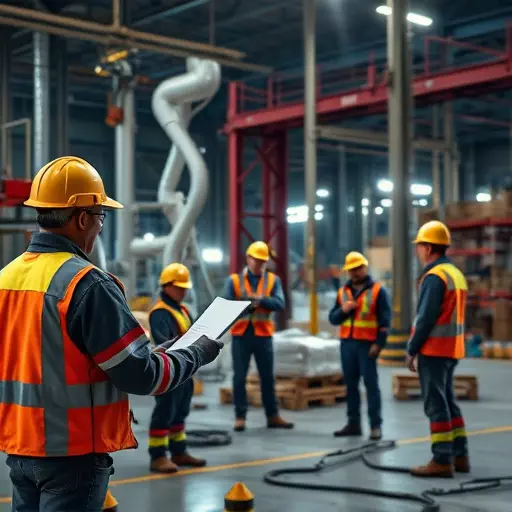
Hazard assessment, through specialized safety training by industry, is a dynamic process crucial for…….
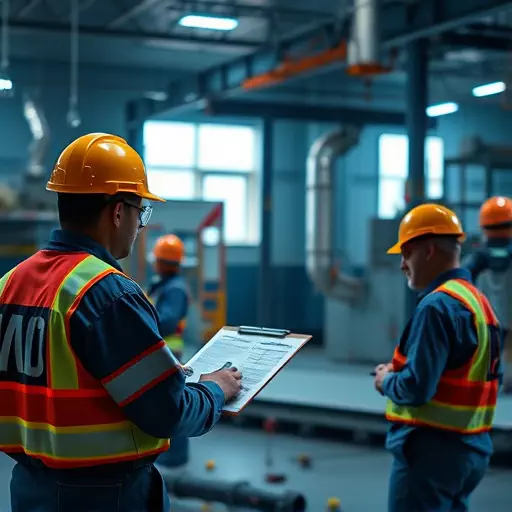
In food manufacturing, adhering to stringent safety standards safeguards consumers and workers. Spec…….
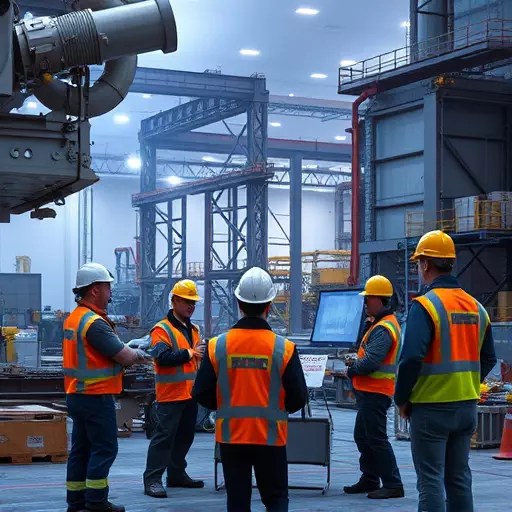
Specialized safety training by industry experts is crucial in the oil and gas sector to address dail…….